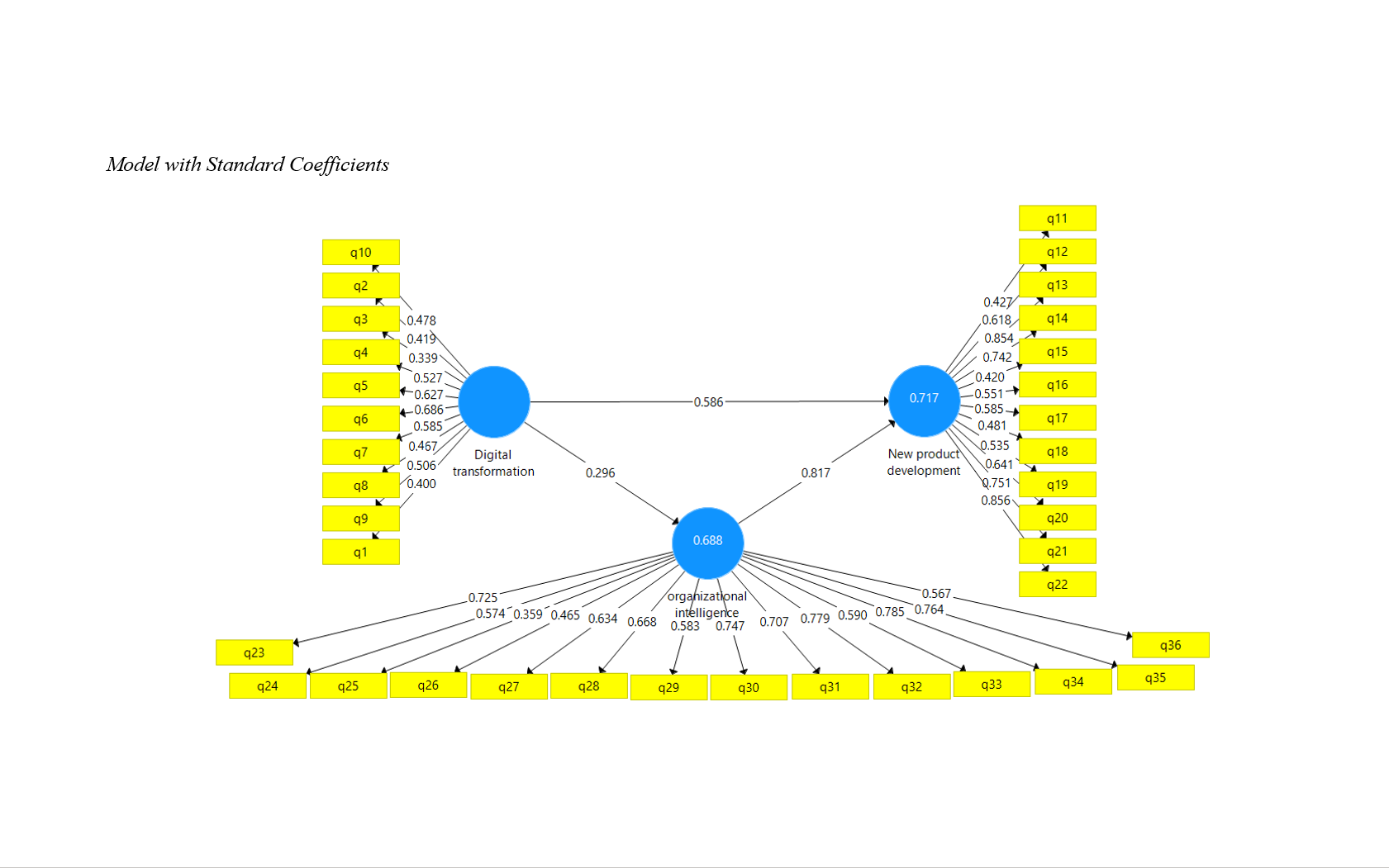The Impact of Digital Transformation on New Product Development with the Mediating Role of Organizational Intelligence
Keywords:
Digital transformation, New product development, Organizational intelligenceAbstract
Objective: This article aims to investigate the impact of digital transformation on new product development (NPD) with the mediating role of organizational intelligence.
Methods and Materials: The research employs a descriptive-correlational design, utilizing questionnaires and field studies to collect data from 100 experts in the rubber manufacturing industry, specifically from Barez and Artavil Tire companies. Confirmatory factor analysis (CFA) was used to assess the validity of the questionnaire, with structural equation modeling (SEM) conducted using Smart PLS software to test the hypotheses. The reliability and validity of the constructs were evaluated through composite reliability (CR), average variance extracted (AVE), and discriminant validity measures.
Findings: The study found that digital transformation significantly affects NPD performance (path coefficient = 0.586, t-value = 9.849), and organizational intelligence strongly mediates this relationship (path coefficient = 0.817, t-value = 12.838). Additionally, digital transformation directly enhances organizational intelligence (path coefficient = 0.296, t-value = 2.865). The R² value for NPD was 0.717, and for organizational intelligence, it was 0.688, indicating strong explanatory power.
Conclusion: Digital transformation significantly impacts NPD success, particularly when supported by high levels of organizational intelligence. Companies that invest in digital infrastructure and knowledge management systems are better equipped to handle the complexities of NPD, leading to more innovative and competitive products. Organizational intelligence serves as a key enabler in leveraging digital tools for successful product development.
Downloads

Downloads
Additional Files
Published
Submitted
Revised
Accepted
Issue
Section
License

This work is licensed under a Creative Commons Attribution-NonCommercial 4.0 International License.















